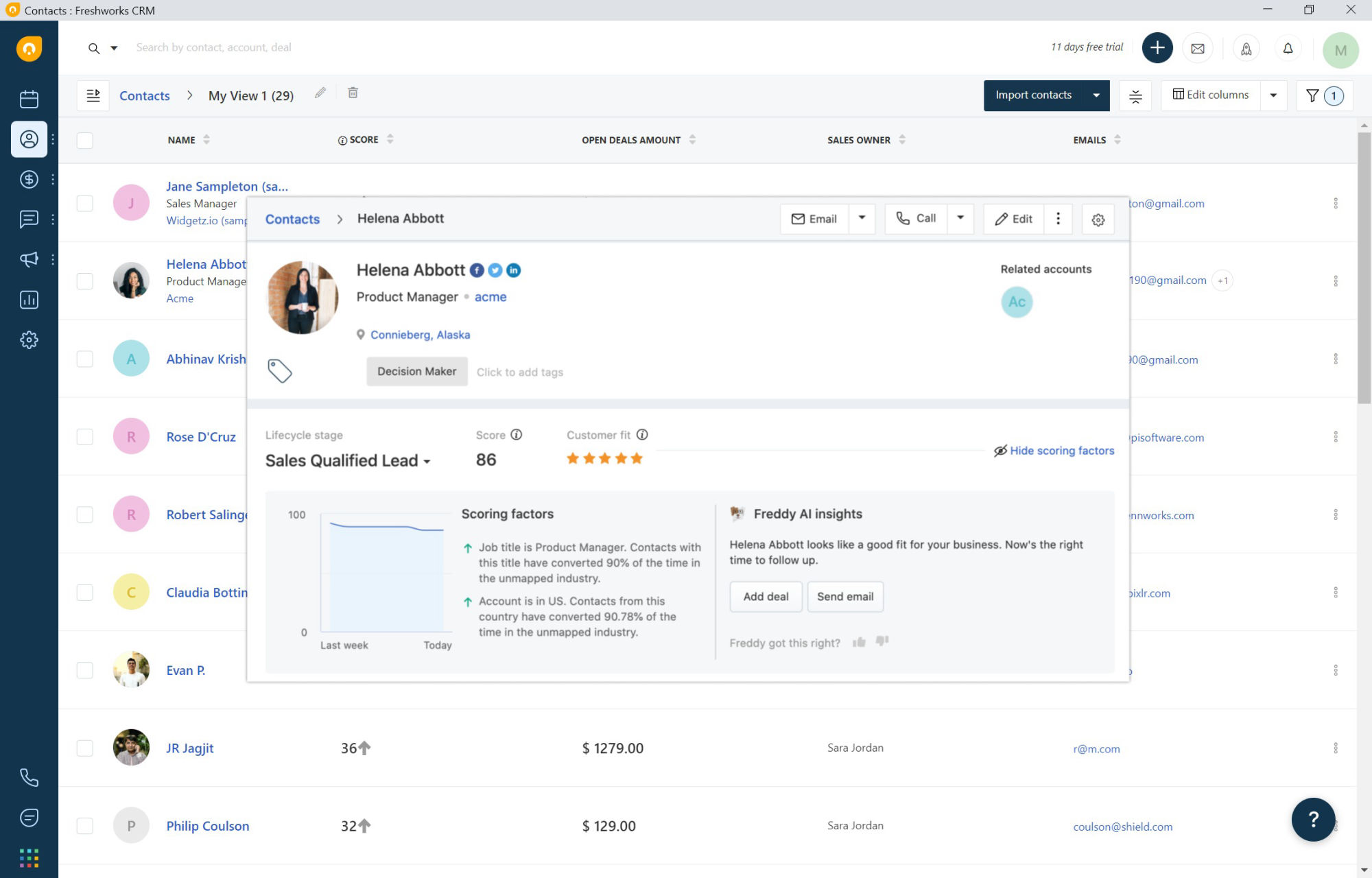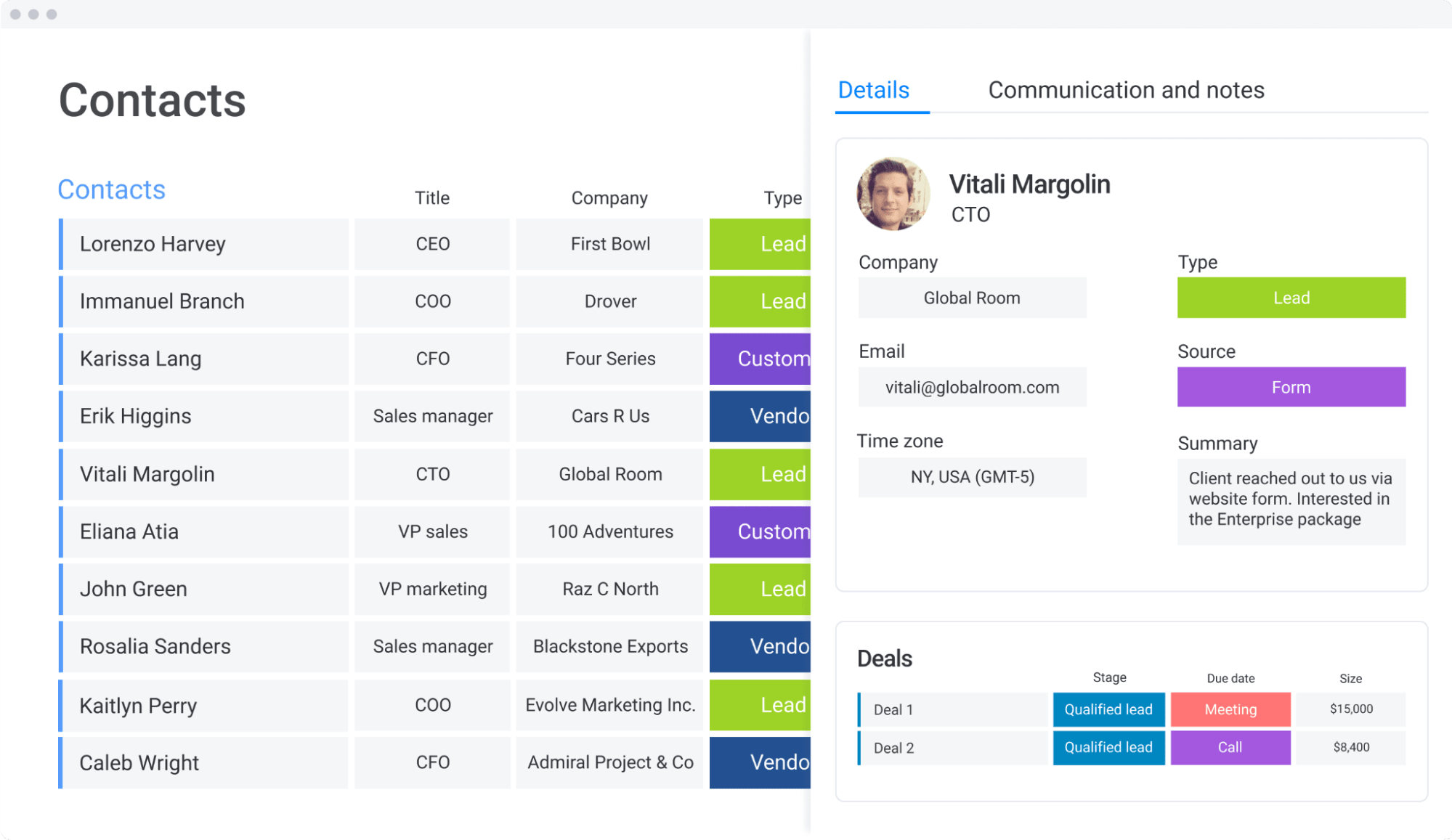Best CRM for contact management takes center stage in this informative guide, offering insights into different CRM systems, essential features, implementation steps, and data security measures. Dive into the world of efficient contact management with the best CRM solutions available.
Types of CRM systems for contact management
In the realm of contact management, various types of CRM systems are available to cater to different business needs. These include cloud-based CRM systems and on-premise CRM systems, each with its own set of advantages and disadvantages. Let’s delve into the details to understand their differences.
Cloud-based CRM systems vs. On-premise CRM systems, Best crm for contact management
Cloud-based CRM systems, as the name suggests, are hosted on the cloud and accessed through the internet. They offer scalability, flexibility, and cost-effectiveness since they require no hardware or software installation. On the other hand, on-premise CRM systems are installed on the company’s own servers and require a dedicated IT team for maintenance. Although they offer more control over data, they can be more costly and less flexible compared to cloud-based solutions.
Benefits of using a customized CRM system for contact management
Customized CRM systems allow businesses to tailor the software to their specific needs, ensuring that it aligns perfectly with their contact management processes. By customizing the CRM system, companies can improve efficiency, enhance customer relationships, and gain a competitive edge in the market. Additionally, customization enables businesses to integrate other tools and applications seamlessly for a more holistic approach to contact management.
Features to consider in a contact management CRM

When choosing a CRM system for contact management, it’s essential to look for specific features that can streamline operations and improve productivity. Let’s explore some of the key features that a contact management CRM should possess.
Essential features of a contact management CRM
– Contact database management
– Interaction tracking
– Task and appointment scheduling
– Communication integration (email, phone calls, social media)
– Reporting and analytics capabilities
Importance of integration capabilities in a CRM system
Integration capabilities allow the CRM system to connect with other tools and applications used by the business, such as marketing automation software or customer support platforms. This seamless integration ensures that all data is centralized and easily accessible, leading to better collaboration and efficiency across departments.
Automation features for streamlined contact management
Automation features, such as automated lead scoring, email campaigns, and workflow automation, can significantly reduce manual tasks and streamline contact management processes. By automating repetitive tasks, businesses can focus on building meaningful relationships with their contacts and improving overall customer satisfaction.
Implementation and customization of CRM for contact management
Implementing a CRM system for contact management requires careful planning and execution. Let’s explore the steps involved in setting up a CRM system tailored to meet the specific contact management needs of a business.
Steps for implementing a CRM system
1. Define contact management goals and objectives
2. Choose the right CRM system based on business requirements
3. Customize the CRM system to align with contact management processes
4. Train staff on using the CRM system effectively
5. Monitor and evaluate the CRM system’s performance for continuous improvement
Importance of customizing a CRM system
Customizing a CRM system ensures that it meets the unique contact management needs of a business. By tailoring the software to specific requirements, businesses can enhance efficiency, improve customer relationships, and achieve better results in their contact management strategies.
Best practices for training staff on CRM usage

– Conduct regular training sessions
– Provide hands-on experience with the CRM system
– Offer ongoing support and guidance
– Encourage feedback and collaboration among staff members
Security and data privacy in CRM systems for contact management: Best Crm For Contact Management
Data security is paramount when it comes to contact management, especially in CRM systems that store sensitive customer information. Let’s explore the importance of maintaining security and data privacy in CRM systems.
Significance of data security in CRM systems
Protecting contact information stored in a CRM system is crucial to prevent data breaches, identity theft, and other cyber threats. Implementing robust security measures ensures that sensitive data remains safe and confidential.
Common security measures for contact information

– Encryption of data
– Role-based access control
– Regular security audits and updates
– Backup and recovery procedures
Tips for ensuring compliance with data privacy regulations
– Obtain consent before collecting and storing contact information
– Implement data protection policies and procedures
– Stay informed about data privacy laws and regulations
– Conduct regular audits to ensure compliance with data privacy standards
Last Word
In conclusion, the best CRM for contact management is crucial for businesses looking to streamline their contact management processes effectively. By choosing the right CRM system and implementing best practices, organizations can enhance customer relationships and boost overall efficiency.
FAQ Overview
What are the key benefits of using a customized CRM system for contact management?
Customized CRM systems offer tailored solutions to meet specific contact management needs, improving efficiency and customer relationships.
How can automation features in a CRM system streamline contact management processes?
Automation features help in automating repetitive tasks, saving time, and ensuring a more organized contact management process.
What are some common security measures to protect contact information in a CRM system?
Common security measures include encryption, user authentication, regular data backups, and restricted access to sensitive information.
Why is data privacy compliance essential when using a CRM system for contact management?
Ensuring compliance with data privacy regulations is crucial to protect customer information and maintain trust while using a CRM system for contact management.
